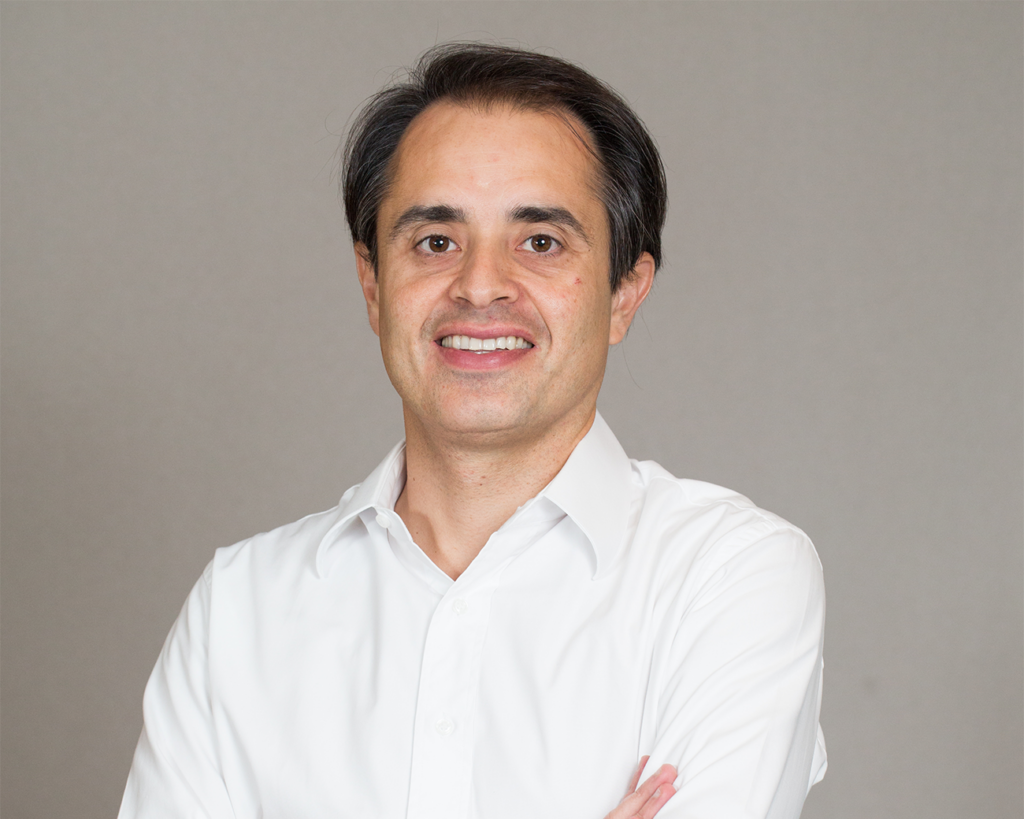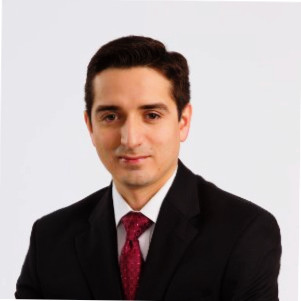LP Profiles, Member Profiles
Christopher Bär, Investment Director and Head of Americas, Munich Private Equity Partners
18 March 2015

LAVCA interviewed Christopher Bär, Investment Director and Head of Americas for Munich Private Equity Partners (MPEP) to learn more about their current exposure to Latin America and their desire to seek at least one further commitment to a LatAm fund during 2015.
LAVCA: Please give some background on Munich Private Equity Partners (MPEP). Who do you represent/who are your clients? What is your AUM? What percentage of your portfolio do you allocate to emerging markets private equity and to Latin America private equity specifically?
Bär: Munich Private Equity Partners (“MPEP”) is a specialised advisory firm with an exclusive focus on private equity. We manage a US$2.3b global private equity programme, providing customised private equity investment solutions, predominantly to German speaking investors in Europe. Our objective is to build world class PE portfolios for our clients on a global basis. MPEP operates out of offices in Munich, Shanghai and Luxembourg, with a multicultural team of 22 permanent staff with diverse backgrounds.
Within our investment programme we have defined the Americas, Europe and Asia as our core markets. Therefore, our investment team is split into three specialised and dedicated investment teams, focused on those regions.
LAVCA: What is the typical size of commitment you make to a fund?
Bär: MPEP will typically make investments of between US$10m-US$30m in each primary fund commitment. The actual amount invested will vary according to how that particular commitment fits into our overall portfolio strategy.
LAVCA: MPEP invests across developed and emerging markets. What emerging markets do you invest in and how does LatAm fit within your emerging markets strategy? How are you balancing your portfolio in the current environment?
Bär: As a European headquartered investor, MPEP’s investment programme has always had a very global perspective. Investments in Emerging Markets as a whole currently represent ~30-35% of the entire programme. Within this, Asia is the single largest component, dominating this element of our activities. Latin America currently represents ~5% of our portfolio overall.
LAVCA: What commitments have you made to Latin America to-date? If so, what attracted you to these funds?
Bär: MPEP’s investments in Latin American funds to date have been with local, indigenous managers rather than global “brands”. We tend to follow this strategy on a global basis as we believe that local decision making can often be (perceived to be) key to deliver ability.
MPEP has three commitments to Latin American funds within its current portfolio. We have invested in both multi-country funds and in one “country champion” fund in Latin America. In each case, we were comfortable with the local network, connections and understanding displayed by that manager in its chosen market(s). We are looking to increase this with at least one further commitment to a Latin American fund during 2015.
MPEP is attracted to those managers that can demonstrate market leading positioning in one or more of the Entry, Enhancement or Exit phases of the investment cycle in their chosen markets.
Latin America remains a distinct part of MPEP’s global programme. At present we are comfortable that our exposure should remain at ~5% of our overall portfolio. We will look to add additional fund positions to our programme in the region as some of our current portfolio funds move out of their investment period.
LAVCA: What strategies are most attractive to MPEP when looking at Latin America and why?
Bär: MPEP always looks carefully at the exit prospects in a given market. In addition MPEP is attracted to managers that undertake true operational improvement of portfolio companies, rather than rely on leverage as a key value driver. For both of those reasons MPEP tends to focus more of its capital on lower mid-market and mid-market funds globally, rather than at the higher end of the market. Managers operating at the higher end of the market tend to have more limited exit routes and tend to be more reliant on leverage in buying assets.
MPEP believes that investors often underestimate the value of understanding local cultures in successful private equity programmes. We believe that this is a global phenomenon. For that reason, MPEP often backs “country champions” in market segments in Europe and Asia. However, we also back multi country managers where those parties have genuine local presence, underpinned by a truly effective local office network that still works cohesively as a collective firm.
In a Latin American context, MPEP is particularly attracted to such multi country managers with effective local office networks, given that the individual markets in Latin American remain comparatively finite. There are very few markets within Latin America where we would back individual country champions, the exceptions potentially being Brazil and Mexico.
LAVCA: Can you describe your due diligence and selection process? What experience level are you looking for in a manager? Why? Would you consider investing in a first time GP (globally and/or in LatAm)?
Bär: MPEP has a rigorous and comprehensive due diligence process that is both quantitative and qualitative in nature. We place significant emphasis on understanding organisational culture and decision making, as we believe that this is ultimately a key driver for the portfolio manager. In essence, we always consider whether the organisation is a properly run business rather than simply a loose coalition of talented investors. We ae very much attracted to “thinking” organisations. This can be in diverse areas, such as internal human capital management, how they source and win opportunities or how they build and manage their pool of executive talent that can be brought into portfolio companies, for example.
We tend to look for experienced practitioners in a given market. There is no substitute for understanding the mechanics and “system” of how a given economy and private equity market operate. Individual and collective networks can be crucial in “winning” in the Entry phase of an investment process.
On a global basis we have invested in first time funds before but this tends to be by exception. It has occurred in the past only in those situations where the team has worked together before and therefore understands how to co-operate in an investment environment.
LAVCA: What role does ESG play in your strategy and/or fund manager selection?
Bär: ESG is playing an increasing role globally. Investors in Europe in particular are becoming more active in trying to understand the ESG policies of those managers they back, both on a fund level and on a fund of fund level.
MPEP takes these concerns seriously and questions its target managers on this topic. It then seeks to help those managers develop their processes where appropriate. MPEP clearly understands that awareness of this issue differs across the globe. Practices are changing, albeit more slowly in some regions than others.
What is key, is the desire to take what should have been best practice in due diligencing underlying prospects in any event and turning this into a coherent ESG programme both pre and post investment. It is this tangible commitment to improvement that MPEP is most focused on at present.
LAVCA: Off the back of a record fundraising year in LatAm in 2014 (US$10.39b), how do you view the private equity opportunity in Latin America in the next 3-5 years? How about the next 5-10 years?
Bär: Given how much statistics can be influenced by a small number of key fundraisings, MPEP tends to look at this picture over a four year cycle, to understand whether the supply/demand balance is being maintained in a given market.
MPEP continues to view the private equity opportunity in Latin America positively. We believe that positive returns can continue to be made in the region and that the best teams can continue to succeed.
MPEP is not an investor that “chases alpha” across the globe. Rather, we seek to invest consistently across our various regions of interest and support our key relationships. We think that this is a better recipe for success than short termism.
LAVCA: What advice would you give to managers looking to work with MPEP?
Bär: MPEP prides itself on its proactive approach to researching and landscaping all of our regions of interest. For that reason, we always seeks to initiate contact with managers of interest.
Outside of individual investment strategies and the nuances of given markets, we tend to favour certain types of managers on a generic basis. We enjoy partnering with those managers that are thoughtful about how they can develop both their people and their business. Too many PE firms can be loose coalitions of investors rather than fully functioning businesses. We would encourage managers to develop the way they think in this regard.
In the end, we feel that managers need to be able to answer one simple question. Why will you consistently “win”, in terms of the Entry, Enhancement or Exit phases of the investment cycle, over the next period? If a manager can provide a coherent answer to this question, then we’d like to talk to them.
You may be interested in...
-

Luciana Antonini Ribeiro, eB Capital
Executive: Luciana Antonini Ribeiro, Co-Founder and CIO Member Name: eB Capital Year...
-

Cristiano Gioia Lauretti, Kinea Private Equity
Member: Kinea Executive: Cristiano Gioia Lauretti, Head of Private Equity HQ: São...
-

Maria Pia Iannariello, MGM Innova Capital
LAVCA recently spoke with Maria Pia Iannariello, Co-Founder & COO of MGM Innova Capital,...
-

Rafael Ramirez, Portfolio Manager, Alaska Permanent Fund Corporation
LAVCA recently spoke with Rafael Ramirez, Portfolio Manager– Private Equity &...
